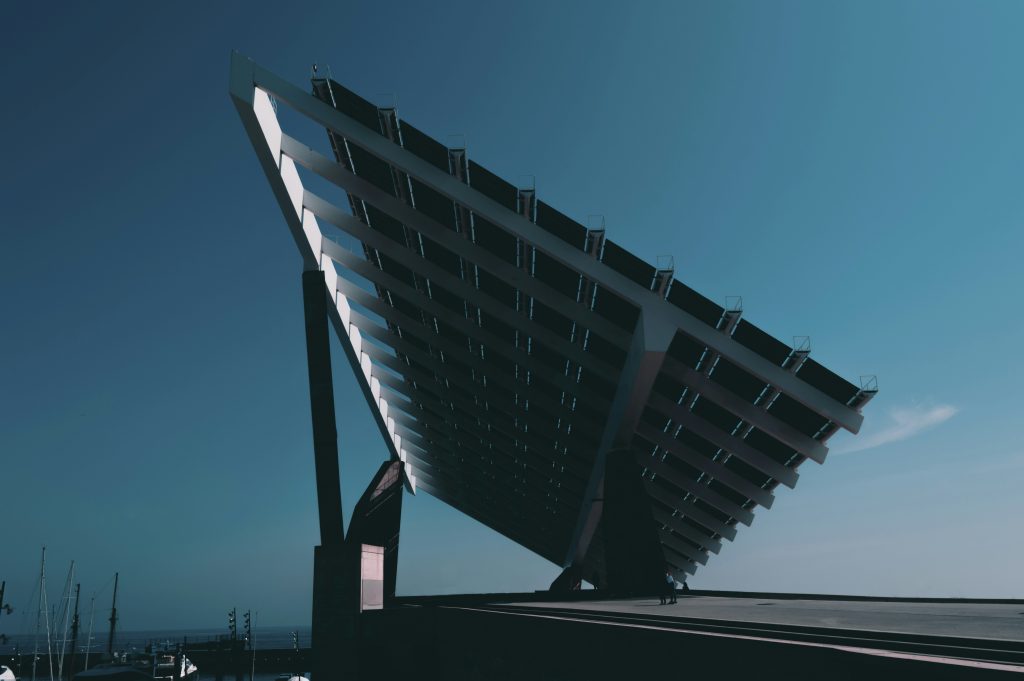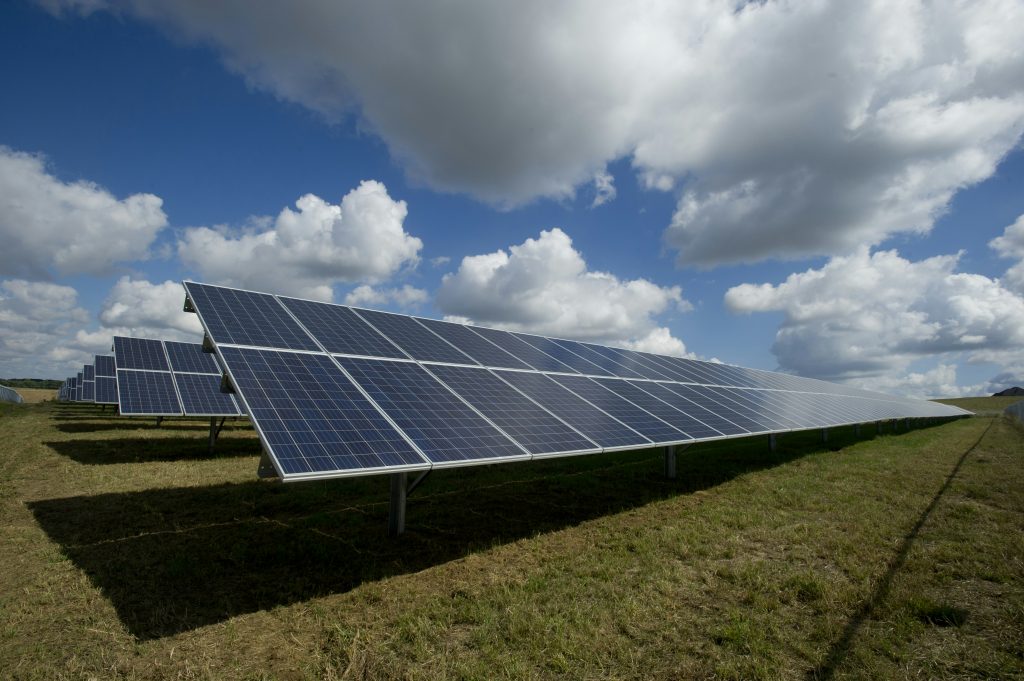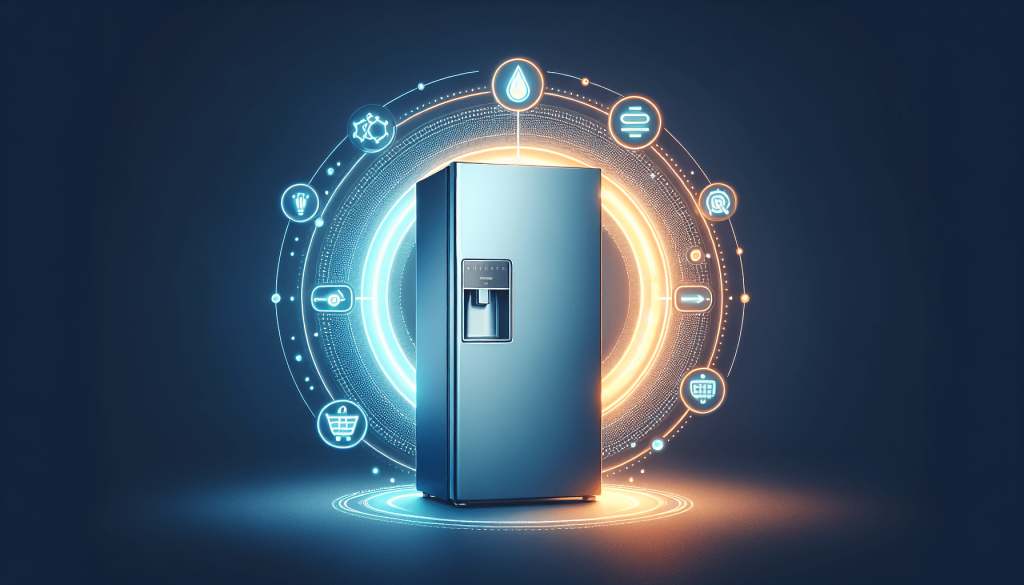Imagine having a fridge that not only keeps your food fresh but also helps you save on energy bills. Smart fridges are the latest buzz in the world of home appliances, offering a range of innovative features to enhance your daily life. But what makes these fridges truly remarkable is their exceptional energy efficiency. In this article, discover the secrets behind the energy-saving capabilities of smart fridges and how they are revolutionizing the way we store food while being kind to the planet.

Smart Refrigeration Technology
Energy-Saving Features
Smart refrigeration technology is designed with a range of energy-saving features in order to optimize energy efficiency. These features are designed to reduce power consumption without compromising on performance. For example, smart fridges are equipped with LED lighting that is not only energy-efficient but also lasts longer than traditional incandescent bulbs. Additionally, some models utilize motion sensors that detect when the fridge door is left open for too long, automatically turning off the interior lights and reducing energy waste.
Temperature Management
Maintaining the perfect temperature for storing food is essential for both freshness and energy efficiency. Smart fridges utilize advanced temperature management systems that help regulate the internal temperature more accurately. By continuously monitoring the temperature and adjusting accordingly, these fridges can prevent unnecessary energy usage. Some models even feature multiple cooling zones, allowing different areas of the fridge to be set at optimal temperatures for specific types of food.
Efficient Compressor Systems
The compressor is a crucial component of a refrigerator’s cooling system, and smart fridges are equipped with highly efficient compressor systems. These compressors are designed to cool the fridge quickly and effectively while using minimal energy. Some smart fridges also feature variable-speed compressors that can adjust their operation based on the cooling needs, further optimizing energy usage. By relying on advanced compressor technology, smart fridges can provide optimal cooling performance while minimizing power consumption.
Smart Sensors and Controls
Climate Monitoring and Adjustments
Smart fridges are equipped with a variety of sensors that monitor the internal climate of the refrigerator. These sensors can detect changes in temperature and humidity, allowing the fridge to make automatic adjustments to maintain an optimal environment for food preservation. For example, if the fridge senses a rise in temperature, it will increase the cooling power to bring it back to the desired level. By constantly monitoring and adjusting the climate, smart fridges ensure that food stays fresh while minimizing energy usage.
Food Recognition Technology
One of the innovative features of smart fridges is the integration of food recognition technology. By utilizing cameras or RFID tags, smart fridges can identify the items inside and provide useful information to the user. This technology allows the fridge to optimize its cooling settings based on the specific food items stored inside. For example, if the fridge detects that you have added a lot of fresh produce, it will adjust the temperature and humidity levels accordingly to ensure optimal preservation. By tailoring the cooling settings to the specific contents of the fridge, energy wastage is reduced.
Optimized Cooling Modes
Smart fridges also offer a range of cooling modes that can be selected based on your specific needs. These modes are designed to optimize energy efficiency while providing different levels of cooling performance. For example, some fridges have an eco-mode that reduces power consumption by adjusting the cooling cycle. Other fridges may have a power boost mode that temporarily increases the cooling power for quick chilling. By allowing users to select the appropriate cooling mode, smart fridges ensure that energy is used efficiently for cooling purposes.
Improved Insulation and Door Sealing
Enhanced Insulation Materials
Smart fridge manufacturers have invested in advanced insulation materials to improve energy efficiency. These materials are designed to minimize heat transfer, keeping the internal temperature stable for longer periods of time. By reducing the amount of heat that enters the fridge, the compressor doesn’t have to work as hard to maintain the desired temperature. This results in lower energy consumption and improved overall efficiency.
Airtight Seals
In addition to enhanced insulation materials, smart fridges also feature airtight seals around the door. These seals prevent cold air from escaping and warm air from entering the fridge, reducing the need for the cooling system to work harder. By ensuring that the door is properly sealed, smart fridges can maintain a more consistent internal temperature, further improving energy efficiency.
Reducing Temperature Loss
Smart fridges are designed with features that minimize temperature loss when the door is open. Some models have quick-access compartments or drawers that allow you to grab commonly used items without fully opening the main fridge door. This helps to prevent unnecessary cold air from escaping and warm air from entering, reducing energy waste. Additionally, smart fridges often have alarms or notifications to alert you if the door is left open for too long, reminding you to close it and minimize temperature loss.
Energy Usage Tracking and Optimization
Real-Time Energy Consumption Data
Smart fridges are equipped with sensors and software that track the real-time energy consumption of the appliance. This data is then displayed on a digital interface, allowing you to monitor and optimize your energy usage. By providing visibility into how much energy is being used, you can make informed decisions about your fridge usage habits and take steps to reduce energy wastage.
Optimal Cooling Settings
Based on the energy consumption data and the specific contents of your fridge, smart fridges can suggest optimal cooling settings to maximize energy efficiency. These settings may take into account factors such as the type of food, quantity, and temperature requirements. By utilizing accurate data and advanced algorithms, smart fridges can help you achieve the ideal balance between food preservation and energy savings.
Smart Scheduling
Smart fridges can also be programmed with customized schedules to optimize energy usage. For example, you can set a schedule for the fridge to operate at lower cooling levels during off-peak hours when electricity rates are lower. By aligning the operation of the fridge with cheaper electricity periods, you can reduce energy costs while still ensuring that your food remains properly preserved.

Remote Monitoring and Control
Efficient Power Modes
To further enhance energy efficiency, smart fridges offer efficient power modes that can be activated remotely. For example, if you’re going on vacation and will not be using the fridge for an extended period, you can switch it to a low-power or vacation mode. This mode reduces the energy consumption of the fridge to a minimum, preserving energy while you’re away.
Remote Temperature Adjustment
Smart fridges also allow for remote temperature adjustment, giving you convenient control over your fridge’s settings even when you’re not at home. This feature is especially beneficial if you realize that you forgot to adjust the temperature before leaving the house or if you want to make changes based on specific needs. With remote temperature adjustment, you can ensure your fridge is operating optimally without wasting unnecessary energy.
Vacation Mode
Going on vacation? Smart fridges have a dedicated vacation mode that allows you to maximize energy efficiency while you’re away. By enabling this mode, the fridge will adjust its cooling settings to minimize energy consumption without compromising food preservation. This feature not only helps save energy and reduce electricity bills but also provides peace of mind knowing that your food will remain fresh during your absence.
Integration with Renewable Energy Sources
Smart Grid Connectivity
Smart fridges can integrate with smart grid systems, allowing them to optimize their energy usage based on real-time electricity availability. By connecting to the smart grid, the fridge can adjust its cooling cycles to align with periods of high renewable energy production or lower demand. This integration ensures that the fridge operates when the energy supply is cleaner and potentially cheaper, further enhancing its energy efficiency.
Solar Power Integration
Taking advantage of renewable energy sources, smart fridges can also integrate with solar power systems. By connecting to solar panels or other solar power sources, the fridge can utilize clean and renewable energy to meet its cooling needs. This integration not only reduces reliance on traditional electricity sources but also helps to minimize the carbon footprint of the appliance.
Load Shifting
Smart fridges can also support load shifting, which involves adjusting the timing of energy consumption to maximize the use of renewable energy. By shifting the cooling cycles to align with times when solar or wind power is abundant, smart fridges can reduce reliance on fossil fuel-generated electricity. This load shifting capability helps to optimize energy usage and reduces the environmental impact of refrigeration.

Smart Loading and Organization
Inventory Management
Smart fridges offer innovative inventory management features that assist in organizing and tracking the contents of your refrigerator. With the help of built-in cameras or barcode scanners, the fridge can recognize and record the items you place inside. This information can be accessed through a mobile app or the fridge’s digital interface, allowing you to easily keep track of what you have and avoid overstocking. By managing your inventory effectively, you can reduce food waste, saving both energy and money.
Food Expiration Alerts
To further minimize food waste, smart fridges can send expiration alerts to notify you when items are approaching their expiration dates. By receiving timely reminders, you can plan your meals accordingly and consume the food before it spoils. This feature not only helps to reduce food waste but also promotes energy efficiency by preventing the need to cool and store unnecessary items.
Reducing Food Waste
Expiration Tracking
Smart fridges can keep track of the expiration dates of the items stored inside. By utilizing sensors or manual input, the fridge can monitor the freshness of your food and provide alerts or recommendations when items are nearing their expiration dates. By being aware of expiring food, you can prioritize consumption and minimize waste, leading to more efficient use of resources.
Smart Shopping Lists
Another helpful feature of smart fridges is their ability to generate smart shopping lists. Based on the contents of your fridge and their expiration dates, the fridge can suggest items that need replenishing. This feature helps you avoid over-purchasing and wasting food, as well as reducing unnecessary trips to the grocery store. By efficiently managing your shopping, you can save both time, energy, and resources.
Recipe Recommendations
Smart fridges can also provide recipe recommendations based on the items you have in your fridge. By analyzing your inventory and cross-referencing it with an extensive database of recipes, the fridge can suggest dishes that utilize the ingredients you already have. This feature encourages you to use the food in your fridge before it spoils and reduces the likelihood of food going to waste. By making the most of your available ingredients, you can save energy, reduce food waste, and explore new culinary ventures.

Predictive Maintenance
Fault Detection
Smart fridges have built-in fault detection systems that monitor various components and functionalities of the appliance. By constantly analyzing data from sensors and other diagnostic tools, smart fridges can detect signs of potential malfunctions or issues. This early detection allows for timely maintenance or repairs, preventing more significant problems from occurring. By addressing faults promptly, smart fridges can operate at peak efficiency, avoiding unnecessary energy consumption associated with faulty components.
Filter Replacement Reminders
Filters play a vital role in maintaining the quality and efficiency of a smart fridge. To ensure optimal performance, smart fridges can send timely reminders for filter replacement. These reminders can be based on a predetermined schedule or calculated based on usage and filter lifespan. By replacing the filters when necessary, smart fridges can maintain a clean, well-functioning cooling system, ensuring energy efficiency and prolonging the lifespan of the appliance.
Longevity and Durability
Advanced Cooling Systems
Smart fridges are built with advanced cooling systems that are designed to be efficient and durable. These systems incorporate cutting-edge technology and materials to optimize cooling performance while minimizing energy consumption. By investing in high-quality cooling systems, smart fridges can provide long-lasting, energy-efficient operation, reducing the need for frequent replacements.
Quality Components
The components used in smart fridges are carefully selected for their quality and durability. From compressors to sensors, every part is chosen to withstand the demanding requirements of a modern refrigerator. By using reliable, long-lasting components, smart fridges can operate efficiently for an extended period, reducing waste and maintaining energy efficiency.
Extended Lifespan
Due to their advanced technology, smart fridges tend to have a longer lifespan compared to traditional refrigerators. With proper maintenance and care, a smart fridge can serve you for many years, providing energy-efficient cooling and reducing the need for frequent replacements. The extended lifespan of smart fridges not only contributes to sustainability but also delivers long-term cost savings by reducing the overall energy consumption and maintenance expenses.
In conclusion, smart refrigeration technology offers a range of energy-saving features and functionalities that optimize energy efficiency, enhance food preservation, and minimize environmental impact. From advanced temperature management and efficient compressor systems to smart sensors and controls, these appliances are designed to provide convenient and sustainable solutions for all your refrigeration needs. With the integration of renewable energy sources, smart loading and organization features, and predictive maintenance capabilities, smart fridges are leading the way towards a more energy-efficient and eco-friendly future. By embracing the benefits of smart refrigeration technology, you can not only save energy and reduce waste but also enjoy fresher and healthier food for you and your family.



